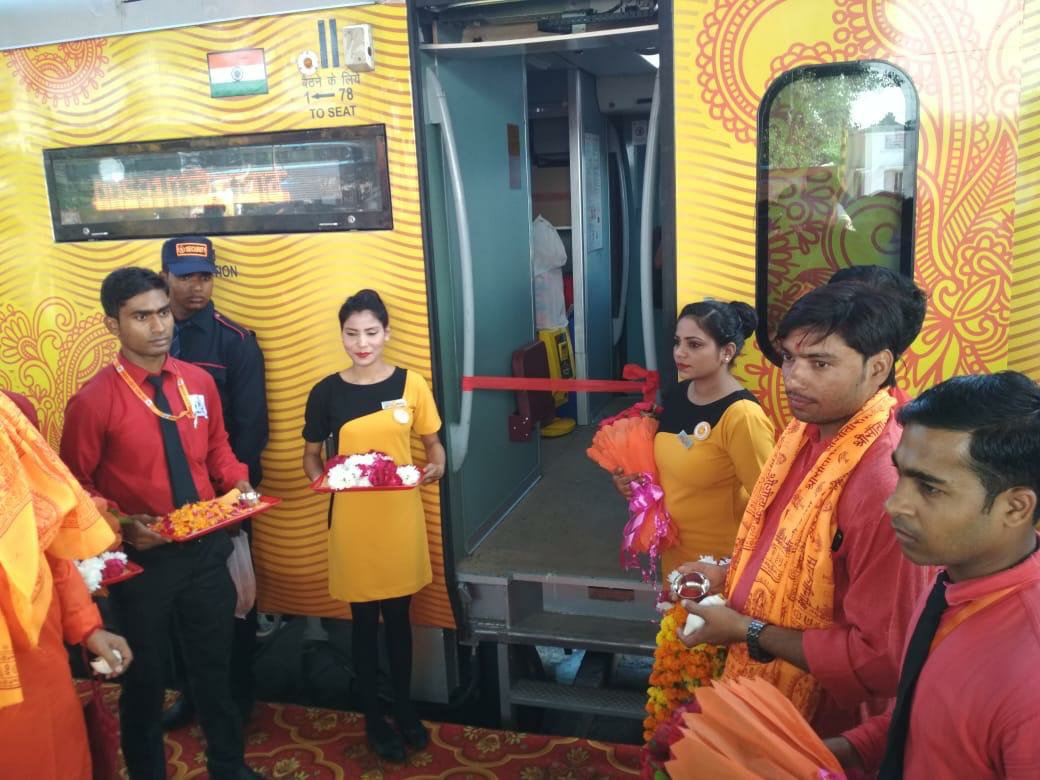Why Modi govt plan to run 150 private trains by year-end
From preferential treatment for private trains to troubles with employee unions, several issues are making the railway privatisation plan appear doomed
If private trains get preference on the timetable, the schedule of the Indian Railways trains will suffer. Tariffs could also become a problem for more underprivileged sections of society
SRINAND JHA
The Narendra Modi government is set to invite bids to operate 150 private trains on 100 identified routes on the Indian Railways network by February-end, and if official timelines are met, such trains will start zipping across the country by the end of the year.
But the plan has already hit trouble, with interested private players rejecting major clauses in the proposal, no one coming forward with an actual quote price, and employee unions showing resistance.
Over the last decade, the Indian Railways’ troubles have grown to the extent that its operating ratio has risen to 98.4 per cent in 2018-19 — meaning it has to spent 98.4 paise to earn every rupee.
The Railways’ 68,400-kilometre-long network remains hopelessly clogged, with 80 per cent of the traffic concentrated along approximately 40 per cent of the tracks. Infrastructure modernisation has not happened at the required pace, and signalling systems and rolling stock (engines or coaches) have remained antiquated. Each year, the Railways has been accumulating revenue losses to the tune of an estimated Rs 30,000 crore in operating passenger services.
In such a scenario, the Modi government thinks the Indian Railways can only take a generational leap through privatisation.
No ‘win-win situation’
The official line is that privatisation will be a “win-win” situation: The Railways will attract private investments worth an estimated Rs 22,500 crore, and will also be able to gainfully re-deploy manpower for more rewarding tasks. Private players will get business opportunities in a “supply-driven” sector. Commuters will get to comfortable rides in glitzy private trains that will offer value-added services, while ensuring punctuality.
But, as it turns out, there is a flip-side as well. If private trains get preference on the timetable, the schedule of the Indian Railways trains will suffer. Tariffs could also become a problem for more underprivileged sections of society — while the Delhi-Lucknow Shatabdi Express charges a fare of about Rs 800 per passenger, the privately-run Tejas Express on the same route costs about Rs 1,600.
In any case, the private parties are bargaining hard. At a meeting of stakeholders at New Delhi’s Ashoka Hotel last month, representatives of private companies spoke out against major clauses of the proposed contract. While 20 private firms attended, none of participants came out with an actual quote price.
“Fresh terms and conditions of the contract are being framed, in line with the feedback collected at the meeting of the stakeholders,” Rajeev Mehrotra, chairman and managing director of the Rail India Technical and Economic Services (RITES), told.
Earlier this month, the Railway Board had given RITES the job of re-framing the contract. Railway Minister Piyush Goyal has also set up a special task force to monitor the project.
Contract tussle
According to the terms of the earlier proposal, private operators would get track access on a 35-year contract, and would get the freedom to fix fares.
The selected operators would also have the option of taking loans from the Indian Railways Finance Corporation (IRFC) on the same terms and conditions as the Railways for purchase of rolling stock. Alternatively, they could take engines and coaches on lease from the Railways.
It was agreed that the Railways’ rules and regulations on the number and duration of stops would not apply to private trains, and that these operators would not be bound by the Railways rules that do not permit advance bookings of tickets beyond a 180-day period.
Tussles, however, have erupted over two issues: First, the demand that the privately-run trains get preferential treatment in the timetable, and second, the private players’ demand that the Railways pay a penalty if punctuality can’t be ensured. “These are among several tricky issues,” said an official, who did not wish to be identified.
Trouble with unions
Considering that the Indian Railways operates 22,593 trains (9,141 freight and 13,452 passenger), the offer to run 150 private trains on 100 routes might well appear like a small matter.
But according to Shiv Gopal Mishra, general secretary of the All India Railway Men Federation (AIRF), the fear is that this could just be the beginning.
“For the current dispensation, this is just the starting point. It is very clear that the ruling dispensation is keen to escalate the plan in coming months and years. Therefore, we are opposing the move,” Mishra said.
“The private players can build their own tracks and run their trains. But we will not allow them to utilise railway manpower and infrastructure to make profits.”
Representatives of railway unions met Goyal and Railway Board Chairman Vinod Kumar Yadav last month, and demanded that employees be given the opportunity to operate trains on the same terms and conditions as offered to the private parties.
Source: theprint.in


